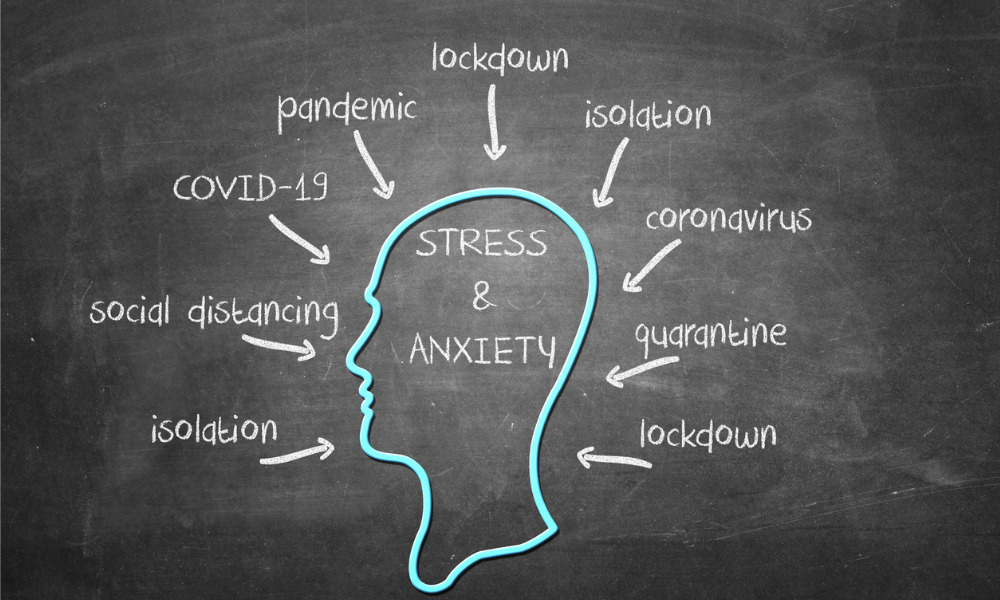
From budgets to benefits – it's time to plan ahead

Looking back on the past year or so, it’s hard to believe what just happened. COVID-19 seemingly came out of nowhere to devastate our ordered lives – forcing employers to reconsider their strategies and people to question their priorities. Now, as we’re on the cusp of returning to work, we should be jumping for joy – but in fact we’re just as anxious and jittery as we were at the start. Why? Because there’s a mental health crisis on the horizon.
HRD spoke to Dr Raeleen Manjak, chief human resources officer at the City of Vernon, who revealed the real and present danger we’re all strolling into – and how HR leaders should be preparing for a tsunami of mental health concerns.
“It’s incumbent upon both leaders and employees to do what we can, within the parameters of the workplace, to recognize that people are suffering,” Dr Manjak told HRD. “As HR leaders, we must ensure we're prepared to support those who need it. You should focus on the discussion around mental wellness – in particular around removing the stigma and breaking down those barriers. That's an absolute necessity – after all, it’ll go far in helping workers who’re experiencing poor psychological health yet are afraid to speak out.”
There’s this overwhelming sense of uncertainty surrounding our eventual return to work. Three months into the pandemic, people were chomping at the bit to get back to their old routines – to re-enter their offices and mingle with their colleagues. Now, paradoxically, we seem to have grown accustomed to our virtual-based lifestyles. Vaccines are working, borders are opening – and yet we’re peculiarly reluctant to go back to life as we knew it. We can see the light at the end of the tunnel – but it’s almost too bright.
Read more: Want happier workers? Be financially transparent
Between return-to-work anxiety, fear of catching COVID, long-standing depression and the impact of isolation, there’s a wave of mental health concerns simmering under the surface. For HR leaders, the question becomes not if these will come to fruition – but when, and what will they present like in the workplace?
“Are we really emerging from the pandemic – or are we simply moving to endemic?” continued Dr Manjak. “People are seeing that COVID will never end absolutely - it may be with us forever. As we wrestle with that, we're beginning to see that psychological wellbeing concerns are inevitable. From an HR perspective, this is going to take a lot of planning. Leaders need to keep their employees at the centre of all their future plans – preparing for any and all issues that will arise on our return to work.”
At the City of Vernon, Dr Manjak rolled out a plethora of mental health support schemes. One of the additional learning and development opportunities they’re offing their HR practitioners is to be trauma informed.
“As a division, we're all taking trauma informed care modules so that we can really understand the best way of working with people to create that physical, emotional safety,” she told HRD. “Depression and anxiety are absolutely on the rise. And we know that burnout is certainly impacting employees in the workplace. But as for the future, who knows what’s waiting? That’s why it’s so important for HR to be fluid and agile - managing the health and wellness of our employees, as well as the operational considerations in the workplace.”
By this point, one would hope that HR departments had rolled out at least a semblance of a mental health plan. The biggest mistake employers could fall prey to is assuming that, once those office doors open, it’s 2019 again. People have changed, their needs and expectations have completely evolved. It’s no longer enough to offer free beers on Fridays or buy ping pong tables and kid yourself into thinking you have a ‘cool culture’. Employees want tangible, authentic, support – not gimmicks.
Read more: Going hybrid? Here's what to factor in your HR policy
“Mental health should already be a core component of your culture,” added Dr Manjak. “And if not, then you need to start there. You need to ask your employees what they would like to see - what learning and development opportunities do they require. Do they want lunch and learns? Community champions? Volunteering days? There’s a wide range of options for companies of all budgets and sizes.”
These initiatives really don’t have to break the bank. After all, trying to vie for a slice of the annual budget is akin to entering the gladiatorial arena. HR will need to put together a simple, cost effective, plan – one which speaks the numerical languages of the boardroom.
“Mental health is simply part of everything,” added Manjak. “As such, it’s difficult to delineate a budget for it. The first step is to commit - a fulsome commitment from the very top of the organisation down to the bottom to make mental health a priority. Once you have that commitment, then you need to build a business case on how you're going to make it work – including people budget and time.
“Many of the initiatives that we do are very cost effective. We partner with local agencies and pull upon the skills and talents our employees already possess. For instance, one of our employees is a yoga instructor – so he offers free sessions on the green. For cost effective and highly successful strategy, leverage those existing relationships to support the initiatives that are in that business case.”
And remember, it’s okay not to be okay. Managing your own mental health whilst trying to manage that of the rest of your organisation is taxing, draining, and a touch infuriating. Take heed of your own advice, HR, and breathe.